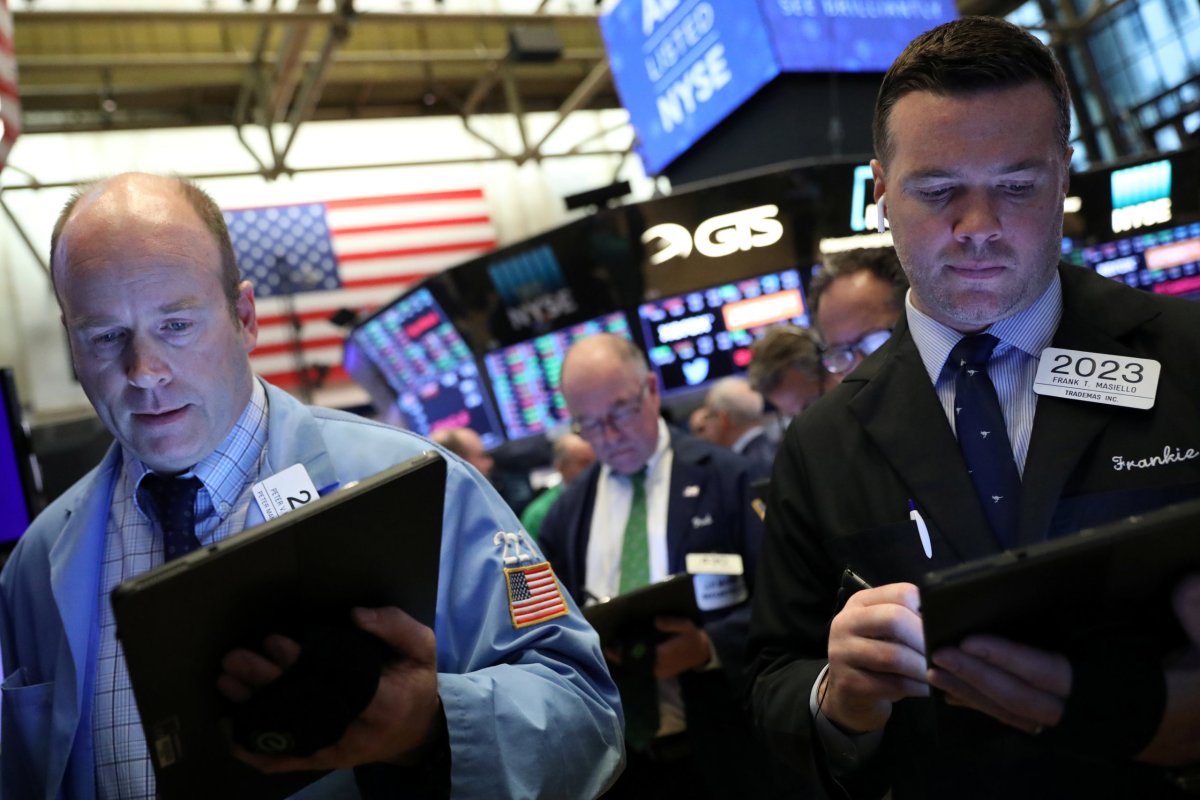By Stephen Culp
NEW YORK (Reuters) – U.S. stocks ended slightly lower on Wednesday as a drop in healthcare shares overshadowed a string of positive corporate earnings and upbeat economic data from the United States and China.
All three major U.S. stock indexes ended the session in negative territory, with the S&P 500 remaining just within a percent below its record high reached in September.
The healthcare sector saw its biggest percentage drop in four months, falling 2.9% on regulatory worries.
UnitedHealth Group Inc, Pfizer Inc, Merck & Co Inc and Abbott Laboratories all closed down between 1.9% and 4.7%, and were among the biggest drags on the broader S&P 500.
“Companies are worried about the attention ‘Medicare for all’ is getting,” said Jim Bell, president and chief investment officer at Bell Investment Advisors in Oakland, CA. “The way the CEOs of these companies are going on offense against the discussions in Congress, it starts a momentum of its own.”
Investors “would rather invest in sectors that aren’t going through such a big controversy.”
The sector’s drop dampened generally encouraging earnings reports.
Morgan Stanley rose 2.6% after beating analyst estimates due to cost-cutting and growth in its wealth management segment.
United Continental Holdings Inc jumped 4.7% following Tuesday’s after-market earnings report, where the airline bested consensus estimates and held its 2019 profit target firm, even as Boeing Co’s 737 MAX jets remain grounded.
Robust business jet demand drove Textron Inc’s earnings beat, driving its stock up 4.0%.
PepsiCo Inc reported better-than-expected first-quarter sales on strong North American demand. The packaged food company’s shares rose 3.8%.
With reporting season in high gear, analysts now expect Jan-March S&P 500 profits to have dropped 1.8% year-on-year, according to Refinitiv data, which would mark the first earnings decline since 2016.
Of the 54 S&P 500 companies that have posted thus far, 79.6% have beaten consensus, compared with the 65% average beat rate going back to 1994.
The Dow Jones Industrial Average fell 3.12 points, or 0.01%, to 26,449.54, the S&P 500 lost 6.61 points, or 0.23%, to 2,900.45 and the Nasdaq Composite dropped 4.15 points, or 0.05%, to 7,996.08.
Of the 11 major sectors in the S&P 500, six ended the session in the black.
Qualcomm Inc surged 12.2% after the chipmaker settled its long-running legal battle with Apple Inc. Apple shares climbed 1.9%.
The news boosted other chipmakers, with the Philadelphia SE Semiconductor index advancing 1.6%.
On the economic front, the U.S. trade deficit dropped to an eight-month low in February due to a 20.2% plunge in imports from China.
China, meanwhile, saw its first-quarter GDP grow at a better-than-expected 6.4% annual rate.
Declining issues outnumbered advancing ones on the NYSE by a 1.39-to-1 ratio; on Nasdaq, a 1.74-to-1 ratio favored decliners.
The S&P 500 posted 47 new 52-week highs and 5 new lows; the Nasdaq Composite recorded 68 new highs and 63 new lows.
Volume on U.S. exchanges was 7.07 billion shares, compared to the 6.84 billion average over the last 20 trading days.
(Reporting by Stephen Culp; Editing by Nick Zieminski)



















